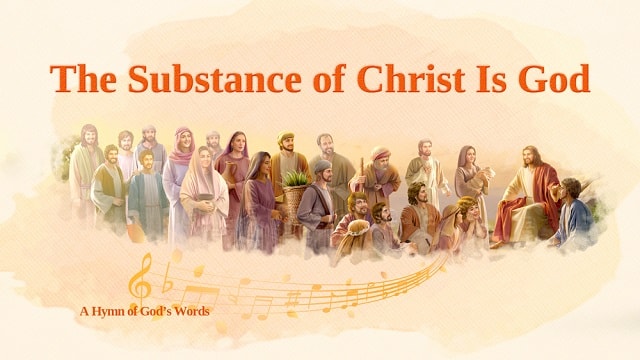Question 3: What is the difference between God’s words conveyed by prophets such as Isaiah, Ezekiel, and Daniel from the Age of Law, and the words expressed by God in the flesh?
Answer: Due to the difference between the essence of the incarnate God and the prophets, the incarnate God comes to do God’s work whereas the prophets only performed the duty of man. So the nature of their work is different. Let’s see how Almighty God says it. Almighty God says, “The prophets of the Old Testament made prophecies, and similarly, so could Jesus. Why is this so? The distinction here is based on the nature of the work. In order to discern this matter, you cannot consider the nature of the flesh and you should not consider the depth or superficiality of one’s words. Always you must first consider his work and the effects his work achieves in man. The prophecies spoken by Isaiah at the time did not supply the life of man, and the messages received by those such as Daniel were merely prophecies and not the way of life. If not for the direct revelation of Jehovah, none could have done that work, for it is not possible for mortals. Jesus, too, spoke much, but such words were the way of life from which man could find a path to practice. That is to say, first, He could supply the life of man, for Jesus is life; second, He could reverse the deviations of man; third, His work could succeed that of Jehovah in order to carry on the age; fourth, He could grasp the needs of man within and understand what man lacks; fifth, He could usher in a new age and conclude the old. That is why He is called God and Christ; not only is He different from Isaiah but also from all other prophets” (“The Difference Between the Ministry of the Incarnate God and the Duty of Man” in The Word Appears in the Flesh). From the word of Almighty God, we realize that the incarnate God performs His own ministry and does the work within the management of God that represents the work of an era, and that the word He expresses is for all mankind. However, the prophets were those used by God to do the duty of man when He worked in the Age of Law. The prophets just conveyed the word of God through the inspiration of Jehovah God by stating some prophecies, giving some warnings to people or doing some sporadic work. If we can distinguish between the prophets’ duties and the incarnate God’s ministry, we can see the difference between the word of God conveyed by the prophets and the word expressed by the incarnate God. We all know that the prophets were people raised up in various periods of the Age of Law to convey God’s word. The main function of the prophets was to state the prophecies while conveying God’s requirements, commands, as well as God’s exhortations, reminders, warnings, and words of punishment to the Israelites or others. For example, when the evil deeds of the Ninevites came up before God, God sent Jonah to Nineveh to proclaim, “Yet forty days, and Nineveh shall be overthrown” (Jon 3:4). It can be seen that the prophets only conveyed the word of Jehovah in various periods. They did not do the work of any particular age. The words of God conveyed by the prophets were something like prophecies, exhortations, reminders, warnings and so on, not expressing all the truth for the salvation of mankind. As for the word of God incarnate, He comes to do a stage of work and speaks to all mankind in the identity of God, expressing His management plan for the salvation of mankind, His disposition, what He has and what He is, His requirements of man and the truth that mankind must possess. These words are the work that can open a new age and end an old age, and they are addressed to all mankind. They represent God’s work in this age and are all the truth that God’s chosen people have to experience and enter within this age. These words can supply life to man, make man repent, change man’s disposition, save and cleanse man and make man perfect.






